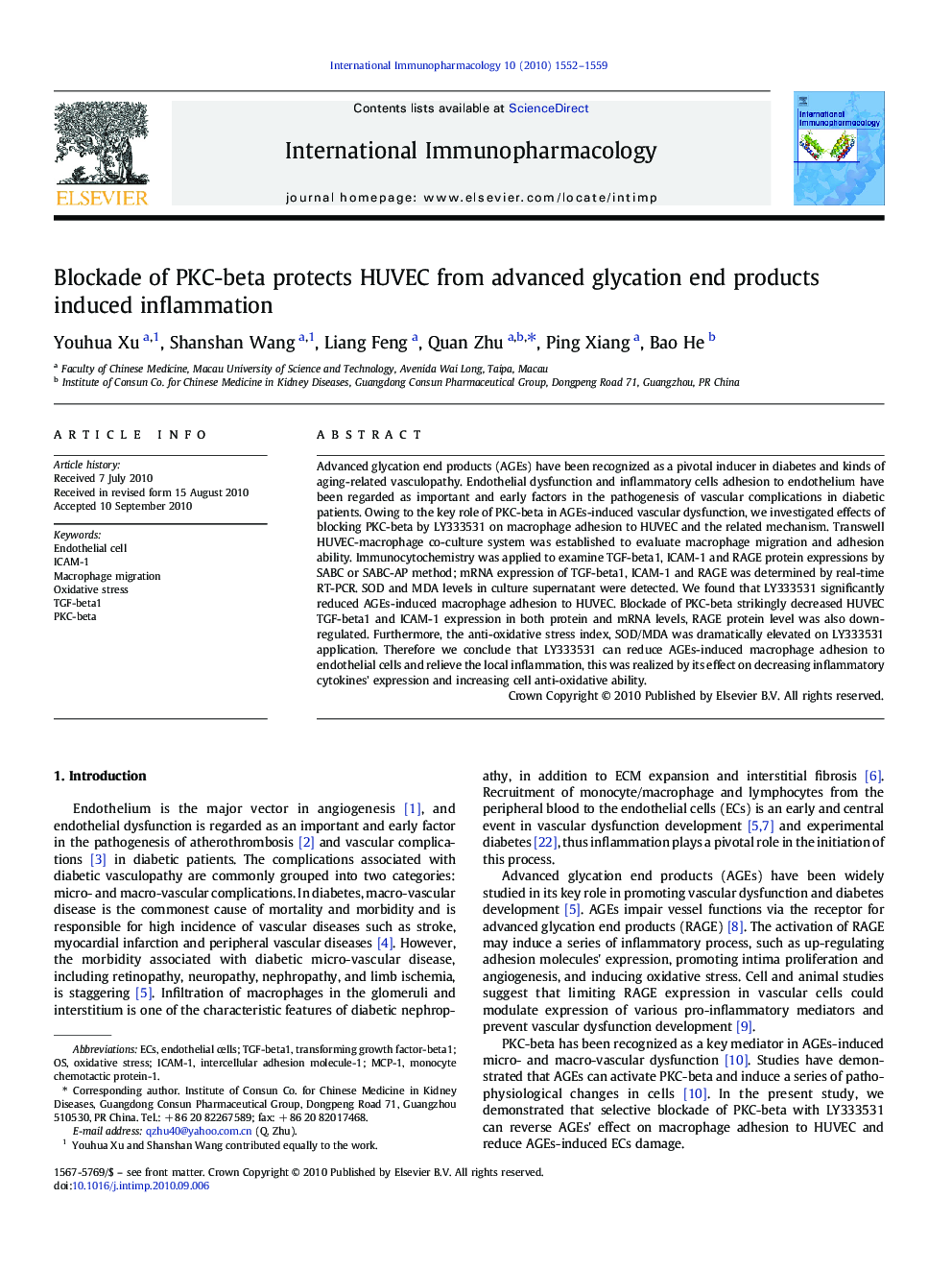| Article ID | Journal | Published Year | Pages | File Type |
|---|---|---|---|---|
| 2541390 | International Immunopharmacology | 2010 | 8 Pages |
Advanced glycation end products (AGEs) have been recognized as a pivotal inducer in diabetes and kinds of aging-related vasculopathy. Endothelial dysfunction and inflammatory cells adhesion to endothelium have been regarded as important and early factors in the pathogenesis of vascular complications in diabetic patients. Owing to the key role of PKC-beta in AGEs-induced vascular dysfunction, we investigated effects of blocking PKC-beta by LY333531 on macrophage adhesion to HUVEC and the related mechanism. Transwell HUVEC-macrophage co-culture system was established to evaluate macrophage migration and adhesion ability. Immunocytochemistry was applied to examine TGF-beta1, ICAM-1 and RAGE protein expressions by SABC or SABC-AP method; mRNA expression of TGF-beta1, ICAM-1 and RAGE was determined by real-time RT-PCR. SOD and MDA levels in culture supernatant were detected. We found that LY333531 significantly reduced AGEs-induced macrophage adhesion to HUVEC. Blockade of PKC-beta strikingly decreased HUVEC TGF-beta1 and ICAM-1 expression in both protein and mRNA levels, RAGE protein level was also down-regulated. Furthermore, the anti-oxidative stress index, SOD/MDA was dramatically elevated on LY333531 application. Therefore we conclude that LY333531 can reduce AGEs-induced macrophage adhesion to endothelial cells and relieve the local inflammation, this was realized by its effect on decreasing inflammatory cytokines' expression and increasing cell anti-oxidative ability.
Research highlights► PKC-beta participates in AGEs-induced inflammatory cell infiltration. ► LY333531 decreased AGEs-induced inflammatory cytokines' over-expression. ► Established a cell co-culture system that can evaluate inflammatory cell migration and infiltration.
